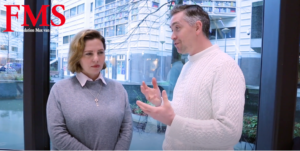On 4 October 2025, Georgia will hold local elections for mayors and municipal assemblies in all sixty-four municipalities. The vote will be conducted under rules similar to those used in 2017: a mixed proportional–majoritarian system for assemblies, a forty percent threshold to avoid second rounds in mayoral races, and a four percent barrier for parties in proportional contests.
These elections are the first major political test since the parliamentary crisis and mass protests of 2024–25. They will be closely watched as an indicator of the balance of power between the ruling Georgian Dream and a fragmented opposition.
Ruling Party
Georgian Dream enters the campaign aiming to consolidate its dominant position. Party leaders have declared their goal to win both mayoralties and assemblies across all municipalities. Georgian Dream already controls sixty-three of the sixty-four district councils and is running uncontested in nearly half of the municipalities. In Tbilisi, the capital and symbolic prize, incumbent mayor Kakha Kaladze is again the party’s candidate. The ruling party has sought to bolster its campaign with high-profile promises, such as reviving a tram line in Tbilisi, while framing itself as the only stable governing force after recent unrest.
Opposition Boycott
The opposition landscape is marked by division over participation. In June 2025, nine opposition parties announced a boycott of the elections, insisting that no credible contest could take place without fresh parliamentary elections and the release of political prisoners. For them, non-participation is a deliberate act of protest intended to expose what they view as the erosion of Georgia’s democratic institutions and the illegitimacy of the process under Georgian Dream.
This stance has been reinforced by international criticism of democratic backsliding in Georgia. However, it also carries risks: by staying off the ballot, boycotting parties may leave local governments firmly in the hands of the ruling party, weakening their grassroots presence.
In the municipal elections of 2021 forty-three parties appeared on the ballot. On the ballot this time round there will only be twelve parties from which Georgian’s will be able to choose from.
Fragmentation and Participation
Not all opposition parties have chosen to abstain. Strong Georgia has allied with former prime minister Giorgi Gakharia’s For Georgia, presenting joint candidates in several municipalities. Recently, several Lelo/Strong Georgia candidates have withdrawn from the ballots alleging pressure, threats and bribery. Girchi is also contesting widely, including in Tbilisi, while smaller parties such as Conservatives for Georgia are fielding candidates focused on identity, migration and pro-Russian themes.
These decisions have created tension within the opposition camp. Boycotting parties accuse participants of legitimising a flawed system, while those who run argue that presence on the ballot is essential to maintain political relevance and local networks.
The legitimacy of the elections is also called into question by the decrease in international and local election observers. Notably there is no OSCE/ODIHR election observation mission due to a last-minute invitation by Georgian Dream, resulting in insufficient time to deploy a mission. There are twenty-eight international missions, and twenty-three local observers registered. For the municipal elections of 2021 there were sixty-four domestic election missions, which shows a stark drop in local election missions. Key local election observers such as Georgian Young Lawyers’ Association and Transparency International chose not to deploy missions. There have also been questions raised about the alliances of some of the remaining local observation missions such as Moving Forward and Protect Your Homeland.
Key Contest: Tbilisi
The mayoral race in Tbilisi will be the most closely watched. Kaladze seeks re-election with the backing of Georgian Dream. Opposition forces outside the boycott have united behind Irakli Kupradze as a joint candidate, while Girchi’s Iago Khvichia and Conservatives for Georgia’s Zurab Makharadze, who has been sanctioned by the USA, are also in the race. With the mainstream opposition absent, Georgian Dream starts with a clear advantage, though the race will be an important measure of whether alternative voices can still mobilise significant support. Other major cities such as Batumi and Kutaisi will also be watched closely.
Protests
October 4 is expected to bring more than just voting. Opposition groups have called for a large anti-government demonstration in central Tbilisi, as well as other Georgian cities and abroad, described by some as a “peaceful revolution” and by others as a “takeover of power” through mass mobilization. Organizers present the protest as an alternative to electoral legitimacy, suggesting that public dissent may matter as much as ballots.
The timing of the protest, coinciding with the vote, raises the stakes. A strong turnout could undermine the credibility of the elections, while clashes or a heavy security response risk escalating tensions. In recent days, authorities have already detained or restricted opposition leaders, and Georgian Dream has warned that any unlawful acts will be met with force. However, large, visible demonstrations could intensify pressure on the ruling party, especially if violence or repression occurs.
The 2025 local elections are expected to produce a strong result for Georgian Dream, particularly given the scale of the boycott. However, questions of legitimacy will overshadow the outcome. Limited competition in many municipalities, uneven opposition participation, and depressed turnout may deepen concerns about democratic decline.
For Georgian Dream, victory will reinforce institutional control but may fuel further criticism at home and abroad. For the opposition, the elections highlight a strategic dilemma: whether to resist through abstention or to risk legitimising the process by participating.
Ultimately, the local elections will serve not only as a test of municipal governance but as a barometer of Georgia’s democratic trajectory at a moment of profound political uncertainty.


